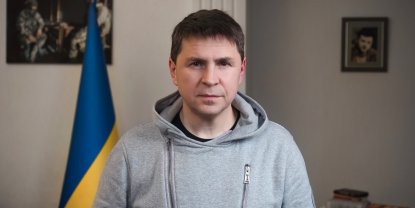Online.ua journalist Viktoria Belik asked Mykhailo Podolyak, the Advisor to the Head of the Office of the President of Ukraine, what Ukraine achieved in 2023, when the war will end, what the West plans to do, and whether Russia has any chances for the future. He shared with our team the summary of 2023 and the challenges facing the President's team for the next year, 2024.
The office has portraits of the president, the military and a symbolic painting with the stamp "Russian warship, forward...!" on the walls. We have little time to prepare, so we are in a hurry. Mr. Podolyak enters the office fast, and the energy of the space changes. He is focused and calm, tunes into the conversation in seconds, and we start the interview.
Mykhailo Podolyak: Summary of 2023
We are having this interview at the end of December, and usually the results are summarised at the end of the year. What was 2023 like for Ukraine?
Firstly, we are where we are. Both in terms of the war itself, and in terms of our partners who support us, and in terms of understanding who we are.
This is very important, because at the beginning of the war there were many doubts whether we would be able to withstand all this.
But today, these are not the results of 2023, but the results of this historical period in which we are. We are changing, what we do looks quite impressive. I am generally optimistic about everything. And we significantly increased our international status compared to the previous year.
Well, first of all, the Russians have not moved further into the territory of Ukraine. Despite all of Russia's propaganda statements, they are still where they were. They have not captured a single settlement.
Moreover, they have lost an additional reputational component, because they no longer control the Black Sea. And gradually, I think there will be more changes along the frontline.
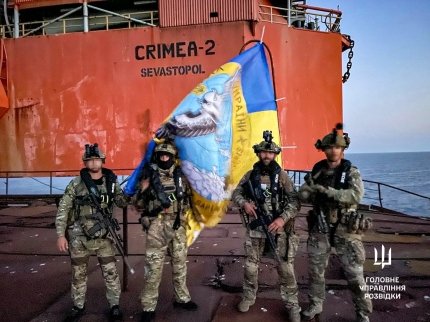
Secondly, we understand exactly what kind of war it is... And our partners also understand it. We have managed to change a lot: the rhetoric of our partners, their understanding of the nature of this war and the essence of the Russian regime. All of that guarantees us continued support, despite some pessimism.
Thirdly, we are better prepared for severe challenges. For example, we can protect our energy system or the sky more effectively. Today, we are in a stronger position than last year in terms of combat operations and military production.
Two years of war certainly affected the psycho-emotional state of Ukrainians even harder than during the Second World War. Especially the fact that the Russia-Ukrainian war is happening in the 21st century.
We are going through a lot of events, doubts and changes. Everything is changing fast, sometimes too fast. There is only one stable thing in this fluid environment – Ukraine.
The State knows exactly what its goals are and what resources are needed to achieve them. We have achieved a lot in the military sphere and we know what we have to do next to continue our legendary technological breakthrough.
This is the main thing. It is all about the war and our understanding of who we are in this war.
The European Commission and later the European Union made a historical decision on recognising us as a state: ‘You are not Russia, you are not the Soviet Union, you will never return to the past’.
‘Regardless of what Russia says, you are a sovereign country that has the right to your own freedoms and values’ — was their message. These are quite clear statements that have been legally confirmed this year. This is the second important point.
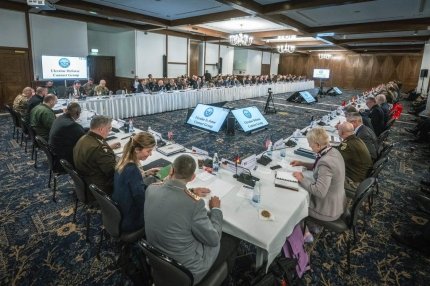
Amid all the talk that Ukraine will have to fight Russia alone, we are seeing a significant increase in direct military, financial and humanitarian support from other countries.
In 2023, Ukrainians began to leave their safe life abroad and return to their homeland. Ukraine is our home and we are fighting for our right to live here.
Speaking about negative things, I see three of them: Russia, corruption and unawareness.
Ukraine in 2023: The main challenges
What is the main negative?
How is it even possible that such a state like Russia actually exists?
There is no point in the existence of such a country, given its current political regime. She makes life difficult for everybody, including herself.
When we talk about corruption, we have to remember that a post-Soviet country inherited a certain economic system, which has a share of the shadow economy built into it.
But there is a lot of evidence that Ukraine is changing this system on her way to a corruption-free future.
We are gradually introducing changes to laws, expanding the powers of anti-corruption bodies such as the National Anti-Corruption Bureau of Ukraine (NABU), the Specialized Anti-corruption Prosecution (SAPO), the High Anti-Corruption Court (HACC) or the National Agency on Corruption Prevention (NACP). Thus, the percentage of transparency is gradually increasing, in particular in the declarations of civil servants. The Ukrainian government understands that our country needs to become competitive, transparent and efficient in order to enter the global market.
The last problem, which is the biggest, is lack of awareness. Nobody knows how long this war will last.
On the eve of the offensive operations, we had a more or less clear idea of the course and duration of the events, based on the amount of weapons we were provided with and the experience of the Kharkiv or Kherson combat operations. Today, with Russia's intention to receive everything or nothing, and when the world society has not yet made up its mind about the future it wants to live in, we cannot understand how long this war will last.
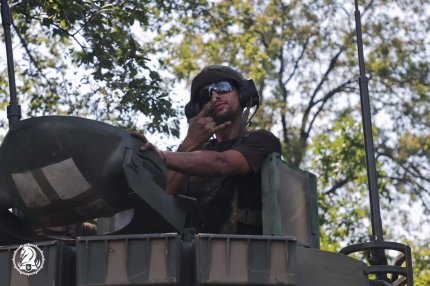
To bring the end of the war closer, we must clearly understand what resources Russia has, make quick logistical decisions and count on the continuation of sanctions against Russia. We expect tougher sanctions that will force foreign companies to stop operating in Russia and pay taxes to a country that plans to spend 40% of its 2024 budget on war.
On the one hand, they limit Russia with sanctions, and on the other hand, they give it the opportunity to circumvent these sanctions and have more money to finance the war. This is not normal.
It seems the world does not quite understand the danger Russia poses to everyone.
And how to get rid of it?
That is why our task is to constantly explain that everyone's stable future is an investment in Ukraine.
The longer this war goes on, the more new conflicts it triggers. And this applies not only to the Middle East but also to Latin America, Africa, the Pacific region and others.
Putin's “SMO” real goals
The president said that Russia had no victories in 2023, but the actions and goals of the “Special military operation” (“SMO”) have not changed. So what did Russia do this year?
Russia killed, destroyed, raped and yelled. Everything that is inherent in Russia. This country does not know how to do things differently. Even if we take Russia as a whole or Putin individually, these are two entities that love war for the sake of war.
For Russia, war is a way to control its internal space and a way to realise its hatred for everyone, it is the principle of the Russian Federation's existence.
They cannot compete in comfort, quality, technology. They can only compete in violence. That is, "be afraid of us" is their key thesis.
They may be very poor, underdeveloped, but they want to feel some kind of greatness of Russia. And this allows them to more or less control their internal space.
As for Putin, goals are not important to him. He has one goal. War for the sake of war. His goal is to destroy Ukrainians. And then to chronicle it, to watch them being killed, raped, to look at the many Russians killed, including the destroyed cities, and so on. This is his perversion.
I always catch myself thinking that people who say: "Let's sit down and talk to them," they don't understand who they are at all. Since 1999, Putin has led Russia as an authoritarian leader or dictator. But during this time, they have not drawn up a portrait of him.
They do not understand the psychotype of this man. For him, there is nothing but violence. This is the essence of what he wants to see. And for him, the war should be endless. There is a hot phase, there is a cold phase, there is an informational, propaganda, hybrid phase, as they call it.
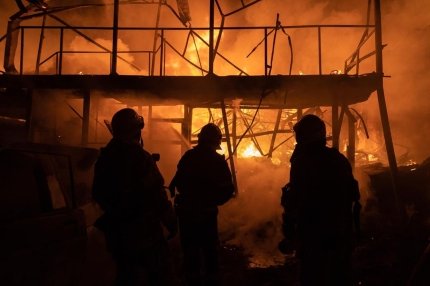
Therefore, if someone wants to say that "we can exchange something for peace", I always ask: does Russia offer you any peace?
Russia has a different offer: we will achieve the goals of the SMO. And what are these goals: destruction of Ukrainian statehood, deprivation of sovereignty, demilitarisation. This is what Putin proposes.
And who told you that a murderer who tasted human blood would become law-abiding afterwards? What is the IQ of these people who think this way? Do they understand exactly who he is? I'm not just talking about those who sit on two chairs. I'm not just talking about those who talk about fatigue and everything else.
Putin's "peace negotiations" with Ukraine
You said that for Putin, this is a war for the sake of war. We have seen him repeatedly hinting at negotiations with Ukraine, but, of course, on his own terms. Why does he need them?
The first is to get us involved in the negotiation process, to get a temporary ceasefire in order to work on the mistakes in their army and their military-industrial complex. To complete the military-industrial complex, increase the production of shells, bring more shells from North Korea, make adjustments to tactics and strategy, dig up the echelons of defence in the occupied territories, reinforce them, fill them with concrete, mine what is not yet mined, train their army, and then issue you with an ultimatum.
He says: "Please surrender. Our demands are simple. Give up your soverenity, as I say, give up your territories. Recognise that these are now our territories, it makes no difference that your people are sitting in our basements."
And if you admit it, he will add more like ‘look, my Constitution says that the city of Zaporizhzhia is also mine. And the city of Kherson is also mine. But we also believe that for security reasons, the city of Kharkiv should be ours. Well, and Odesa. Because the Black Sea is practically our internal water area. We will somehow reach an agreement with Turkey, and with you, let us take Odesa’.
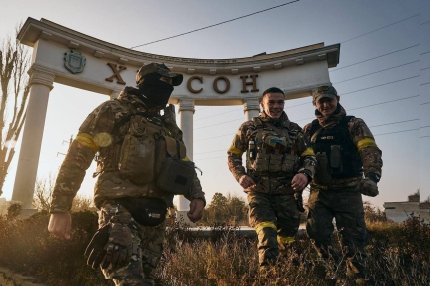
And the third component of his political technology is to involve everyone in a process in which he will dominate. Other countries will say: that's it, the war is over, they are negotiating, so let's stop helping Ukraine. This is a very important element. And if something starts, Russia may say something like ‘Ukraine is at war again, why are you helping them? They want to fight, and we don't want to kill people’.
This is very specific, because they will first come to the talks and listen to what you have to say for exactly five minutes. And after that, they will behave the way Russia always behaves. And how does Russia always behave? It aggressively deceives and wants to humiliate you, including by turning on the camera. Are you ready for such negotiations?
And so there is only one recipe for everyone who wants to live in a predictable future, including us: Russia must lose and go through an internal transformation. If this issue is not resolved, then all of this is fiction.
Russia, like the Soviet Union, is on the verge of collapse
The 12th package of sanctions was approved. At the same time, Putin is increasing the budget for the war. Their economy seems to be doing well: missiles and drones continue to fly into Ukraine. Why don't the sanctions work? Why don't we feel them?
There was a good phrase there: "The economy seems to be doing well". This "seemingly" is correct. It's like the Soviet Union on the eve of its collapse — everything seemed to be fine.
The same is true for Russia. Today they are accumulating budgets, redistributing them in such a way as to finance the war. And they probably have enough resources for some time.
But "seemingly" is the key word. This does not mean that the Russian Federation has a powerful economy. No, no, no. It doesn't. And do the sanctions work? They definitely work. Not in the way we would like, but they work. And they cause significant damage.
The question is different. The question is that there is an opportunity to partially circumvent the sanctions. Through third countries or private companies. And this is a problem. It could be solved if Russia had a certain legal status. For example, a "state sponsor of terrorism". And, accordingly, secondary sanctions on those companies that allow Russia to circumvent sanctions.
Because right now, Russia is circumventing sanctions through a corruption premium. That is, it dumps prices when it sells something or pays a premium when it buys something. This is the second component.
The third component is that if you have European companies operating in the consumer market, it looks strange. Thousands of companies. Because they are the ones who form the budget of the war.
That is, if you want the war to end, even if you make some profit in Russia, you have to opt out of this.
Russia is not even a problem in itself, it is a more global problem. From the point of view that a person, if he or she is not in the midst of a crisis (in this case, as Ukraine is in the midst of a war), wants to get comfort from life. There is an opportunity to make a big profit, and Russia is paying twice as much as usual today.
And you, for example, are a co-owner of a small company, your personal income has tripled. And what difference does it make to you if a city you didn't know about is destroyed somewhere in Mariupol, or Bakhmut is destroyed? What difference does it make? Your profit has increased. This is human nature.
The question is different: we need to talk about it, to record companies, excess profits, and owners. And, by the way, many journalists are doing investigations about this. This is very good and has a great impact. Why do sanctions packages appear in the first place? Because there is pressure from the media community, from society, from Ukraine.
How to deprive Russia of the high level of influence
Ukraine also spends a lot of time negotiating tougher sanctions packages. For example, we are concerned about the oil that is still available on the international market, the tanker fleet of Russia under other flags. We are concerned about Rosatom, because this institution allows Russia to actively influence even a number of European countries, because they sell raw materials, they sell technology, they build nuclear power plants, they maintain them.
We would like this to happen quickly. Russia was a large country that was integrated into the global commodity economy, not a technology economy, but a commodity economy. Russia integrated politicians or public figures from a number of countries. They have become integral members of the boards of directors of Russian commodity companies.
On the other hand, these companies were quite active in financing certain cultural, informational and educational programmes in European countries through the grant system.
Russia sold a large amount of Russian so-called cultural product. The "Russian world" in any form: literature, cinema, music, and so on... They were actively involved in financing various events. The Oscars and everything else.
And information influence. It's big and powerful. Russia today is a "satellite of Rossotrudnichestvo". And many people liked this, who today have to give it all up.
It all has to be broken. And we are breaking it, and the world is breaking it. And many cool people in Europe, in the United States, who refuse, who break it, are working to deprive Russia of cultural and information leverage.
How many drones do the Ukrainian Armed Forces need per month
I want to talk to you about the agreements with our partners on military assistance. What do we need in terms of weapons here and now?
Our partners are certainly helping to the best of their ability, but not at the speed we would like. And our partners are conducting the same analysis together with our military of the necessary tools for this stage of the war. And they certainly understand that this stage, in short, is an asymmetric war.
We cannot provide the same amount of mobilised or old equipment as Russia. And in order to compensate for the asymmetry, we are forced to use technological solutions at the front.
They are key and understandable for our partners and for us, because we invest a lot in this. You heard the president talk about it, this is a huge drone industry. It is huge.
He talks about a million next year, but it could be more because we need more every month. He is being conservative, given that he has all the analytics on what is already launched, what processes are going on, how many drones we are already producing, and so on.
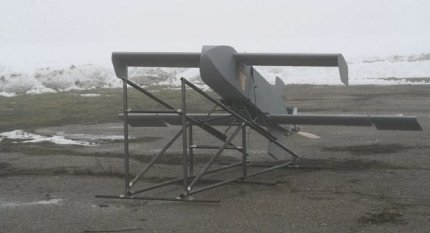
But we understand that we need to use at least 30,000+ drones on the frontline every month, preferably 50,000, and optimally 100,000. This is not an abstraction. This is a specific number that will make it possible to compensate for a certain deficit of artillery or large-calibre artillery fire. And at the same time, it is an effective weapon that allows us to destroy, destroy and destroy Russians anywhere along the front line.
The second component is a system of electronic suppression, control, electronic warfare systems of various modifications, because it allows us to balance the tools that the Russians have.
The third component, of course, is long-range missiles. We cannot fight an asymmetric war if we have ten missiles, for example. We need many more missiles with a range of 150, 200, 300 km. Why? Because you have to destroy the Russian resource far from the front line in order to significantly reduce the number of direct small arms engagements.
The fourth component is aviation. It is impossible to conduct effective offensive operations if the enemy has total air dominance. And the enemy has the same K-52 helicopters and a large number of tactical aircraft. They simply will not let you even raise your head.
The fifth component is any means of demining. Because Russia is just filling everything with mines. Drones, missiles, anti-personnel mines, shells. All this can be resolved today. And our partners understand this.
Our partners are ready to invest, search, buy, supply, etc. with us. The main thing is that, based on the experience of this war, our partners are now upgrading their tactics and strategy.
Demobilisation and rotation: plans for 2024
Demobilisation and rotation. What to do with those who have been in positions without rotation for a year or more. What is already being done for this purpose? What will be done in 2024 to ensure more rotations?
Here I will make a very specific reference to the President of Ukraine, who clearly stated in his State of the Union address that he wants to receive concrete proposals for a programme of mobilisation, demobilisation, rotation, leave and so on.
Because you are right: it is impossible to be on the frontline for two years, almost two years, 12, 16, 18, 20 months. And in order to have a certain combat capability, rotation is necessary. But we need to clearly understand how many people we can demobilise, how many people we can mobilise, and what the principles of mobilisation will be.
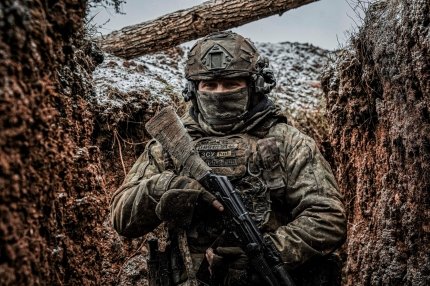
Today, by the way, this is spelled out in the relevant draft law, which will regulate who, how, when and what opportunities will be available for mobilisation in terms of both functional training and professional training.
I mean, if you sign a contract and choose the area where you want to serve, or what functions you want to perform, and in terms of psychological training, training programmes, and so on. All this will be regulated by law.
And the president will get these questions from the military at the Stavka, because they have to deal with these issues in the media, in my opinion, because we need to talk to society in concrete terms: the war is long, the war is big, it is widespread, the enemy is not going to go away.
Even if everyone says: no, let's make a deal with them, let's exchange territories in exchange for peace, no one will talk to you about it. This means that the enemy has come to destroy or to lose. There are two options here, choose one. There is no option here of "let's give him something and sit and keep quiet".
What are your forecasts for when we will be able to see this draft law, and in what form?
They are currently being discussed. This is not a matter of prediction. Intensive work is already underway at the headquarters, when the military gives proposals and then answers additional questions or finalises additional issues.
This applies to the General Staff of the Armed Forces, the Ministry of Defence, and the Ministry of Digitalisation. The deputies of the Defence and National Security Committee work in coordination with them, and they have already developed certain legislative norms.
They will be finalised as soon as possible and voted on. After that, it will be logistically worked out by the military in terms of communication and organisation of the process.
The results of the counteroffensive and what spirit prevails among Ukrainians
I want to talk to you about Maidan 3. It was the largest, most expensive information campaign developed by Russia. Do we still feel it? Or is it definitely over?
There will be no end to it. Russia will invest a lot of money to discredit someone, or to create splits, or to provoke panic. This is standard, this is a war.
In times of war, especially today, in the 21st century, when there are so many information tools that can be used. Social media alone is worth a lot, and the enemy will use it.
This is normal for war — constant pressure like this. And it is normal for war that you will constantly resist. Ukraine can resist this. We are working in terms of effective answers to the most painful issues.
But this will never stop: Russia will spend a lot of money in the global media markets. It will spend a lot of money trying to influence our society. And let's separate the word "Maidan" because it's not a Russian word, and they have no right to use it. Let's call it "Red Square 3", "Red Square 4" and so on.
To what extent is Ukrainian society resistant to all these interferences from Russia?
It is paradoxical: it is both resilient and ready to listen to some strange promotions of strange things. But it is resilient. This is the paradox of Ukrainian society. You think that this is the end, that if you push a little harder, it will fall into depression and stop resisting.
And then someone comes out and says: yes, it is us! And for Russia, everything starts all over again. They have been in this situation many times. They thought they had us pinned down and we were all ready to fight each other. And then, no, no, no — it is there. And everyone rallied. And they ran to reduce the population called the Russian Federation a little bit. And that is it. This will happen, Ukrainian society will definitely survive.
Today, the psycho-emotional phase of the war is clear: everyone expected somewhat different results from the offensive. Everyone thought that it could already be over. That something would be liberated, some other irreversible processes would take place in the Russian Federation. And people lived with this hope. This is normal. And today we need to rebuild. We need to say: okay, not today, but tomorrow.
And so this short period of time called "depression" is objective, but at the same time, there will be one event, another event of a positive nature. There will be some events on the frontline, some other events. And Ukrainian society has calmly rallied. And again, it went where it was needed, where the Russians are very, very afraid of it.
Ukraine's main message for 2024
What do you think will be the main Ukrainian message to the world in 2024?
It has not changed. It is very simple. Turn your head and look at your children. What can you do to make these children happy? To keep them alive, to give them the opportunity to live. And are you ready to step aside when someone comes and tries to rape or kill them? And if not, why are you suggesting that we should?
If you are not offering us this, why are you saying that we need to defend ourselves? Do we need to continue to suffer from the Russians? And if you are ready to answer "no", then let's end this war with a fair ending. Because a fair ending is possible only in one case, when the aggressor, the murderer, the criminal is punished. And this is possible when he loses.
There is a second component here. Predictability of where you will be tomorrow. And the predictability of your tomorrow is decided in Ukraine. Do you want to live in an unpredictable world? No question about it. Then do not invest in Ukraine. But then, again, ask your family and friends if they really want to live in a world ruled by murderers and rapists.
And if you hear the answer "no, we want to live in a world where there are rules", then go back to Ukraine and say: What do you want? Do you want the murderer to sit in the dock, or do you want him to be physically present somewhere? And all the answers are very simple. Never turn away from what needs to be done today, because tomorrow may not come. It is as simple as that.
And, in principle, if everyone here continues to do what they have been doing for the last two years, we will reach the final. It's always hard when you've already crossed the equator and spent a lot of effort. But it seems to you that there is still a huge gap ahead that cannot be overcome, cannot be crossed.
And we are at the end of a historical period of time. This means that either you will have a future or Russians will have a future. And the future of Russians is the collapse of modern civilisation. And historically, Ukraine has been given the right to decide who will be in that future. We have to do this. It's just that Ukraine has a future, and Russia has no future. This is enough.

